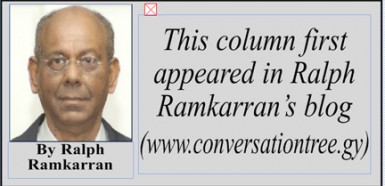 Last Sunday, it was reported that a mother from Enmore on the East Coast had chased her three-year old son around the yard of their home and subsequently stabbed him several times. She then placed him on a bed in the shack which was their home and watched him bleed to death. The mother, Brenda Ferreira, now charged for murder, explained that she dreamt that she would die and did not want to leave her favorite son behind. It is not clear if Brenda Ferreira and those close to her knew or understood that she needed medical attention, or, if she or they did, that they knew how to or were capable of accessing it.
Last Sunday, it was reported that a mother from Enmore on the East Coast had chased her three-year old son around the yard of their home and subsequently stabbed him several times. She then placed him on a bed in the shack which was their home and watched him bleed to death. The mother, Brenda Ferreira, now charged for murder, explained that she dreamt that she would die and did not want to leave her favorite son behind. It is not clear if Brenda Ferreira and those close to her knew or understood that she needed medical attention, or, if she or they did, that they knew how to or were capable of accessing it.
Worldwide extreme poverty has declined from 43 percent of the world’s population in 1990 to 21 percent in 2011. While this has been a major achievement, 750 million people, or 1 in 10, still live in extreme poverty, earning less than US$1.25 a day. In Guyana, is estimated that 36 percent of the population live in poverty and of those, 19 percent live in extreme poverty (Guyana Poverty Reduction Strategy 2011-2015). Brenda Ferreira’s husband is a retrenched sugar worker who is now a labourer at a lumber yard. It is a distinct possibility, the family is one that qualifies as living in extreme poverty.
Extreme poverty is not confined to families in which a member of the household earns an income. The mentally ill, street dwellers, the homeless, addicts, beggars and others all qualify as living in extreme poverty. These are the Guyanese who are most in need of urgent help, without which they are in imminent danger of not surviving. Those of the extremely poor who survive the first flow of oil funds should be Guyana’s first priority.
The proposal that a portion of oil resources should be distributed to families created a stir, especially as the sum appeared large – US$5,000 per family. However, after realism crept into the debate and it was suggested that the recipients should only be poor families and should be only of a small percentage of the oil income, the idea then gathered some traction. But it is still at the debate stage and ideas are still being floated.
Unfortunately, the plight of the most needy—the extremely poor—is not being specifically considered; and their situation requires special attention because their needs are more desperately urgent and the same solutions as those for the poor may not apply to them. A handout of money cannot help many of those living in extreme poverty. For example, it is not clear if Brenda Ferreira had access to more funds that she would have understood that she was ill and needed medical attention. Further, monetary handouts cannot provide shelter for the homeless, or cure the addicted, or permanently assist the beggar. In fact, it might be difficult for the homeless or the beggar to protect his or her money if he or she lives on the street. And without counselling services, the addict may well use the money to support his or her habit.
The extremely poor requires a range of services spanning the entire gamut of social welfare that only professionals can design and implement. These professionals are in short supply in Guyana and so are the professionals that are capable of delivering the services that are needed. The elimination of extreme poverty is Guyana’s most urgent task and while it should take priority, it must be understood that it cannot be eliminated immediately. The professionals have to be trained or imported, the programmes have to be designed, the affected people have to be identified and individual needs have to be assessed. The professionals will have a far better idea of what needs to be done and how complicated the task can be and will no doubt advise the authorities, if asked.
Of course, this does not mean that other urgent problems do not require urgent attention. To supplement the attack on extreme poverty, the government will want to spend major resources on other social services, such as education and health. These will support programmes that will help the extremely poor and, in general, raise living standards all around. The government will also need to spend on infrastructure of all kinds to attract investment in agricultural and industrial development.
For persons such as Brenda Ferreira to get early medical attention and prevent tragedies, standards in the society have to improve. Her family members and those around her must know that she requires medical attention and they must have the understanding that they need to encourage her to seek it. The medical attention must also be available and accessible to enable her to get the help she needs so that tragedies such as in her case are prevented before they tragically happen.





